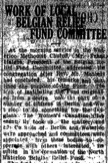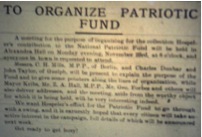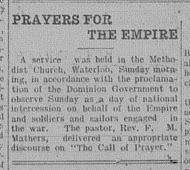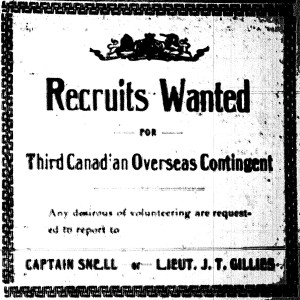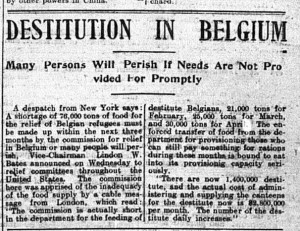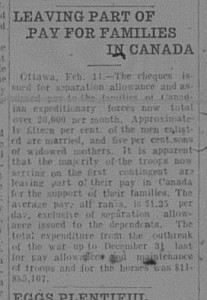Work began in mid- November to form a committee for the relief efforts in Belgium. Concerns over the contributions of the rural communities were paramount in a Waterloo Chronicle -Telegraph article. The Waterloo Chronicle reported on the ‘liberal’ responses by local farmers to produce food for the relief efforts. Local representatives of the Belgian Relief Fund reported that Huron County and Grey County already shipped 33 and 50 carloads of food to Belgium. The committee in Waterloo region was to assess what type of contribution the region could send.
(“Belgian Relief Fund,” Waterloo Chronicle-Telegraph, 19 November 1914)
